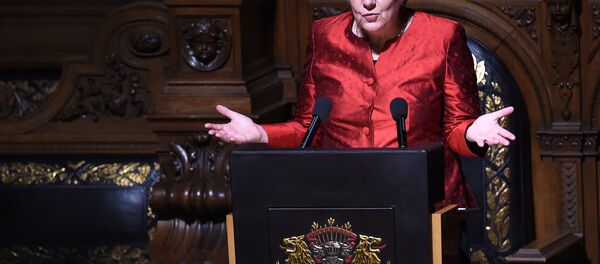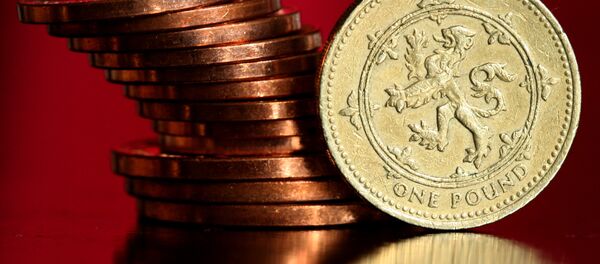"Your decision to be taken is much more about your role in globalization. I think UK is not about becoming Jersey or Guernsey," he told the BBC, referencing recent concerns about the future of the UK's steel industry, which is at risk of collapse due to Chinese dumping of cheap steel on the market.
"Today, you are strong because you are part of the EU. When you discuss your steel industry with China you are credible because you are part of the EU, not because you are just UK. You will be completely killed otherwise," Macron said.
"You will never be in the situation to negotiate face to face with the Chinese because your domestic market is not relevant for the Chinese in comparison with their domestic market. EU is the first global domestic market."
What would #Brexit mean for the UK economy? https://t.co/ia8FostMbc #Europe pic.twitter.com/J28cNjEbkP
— World Economic Forum (@wef) April 12, 2016
The hugely influential German Finance Minister Wolfgang Schäuble also backed up fears that the UK would be treated to a rough ride in the event of a Brexit, with Berlin's leading money man reportedly telling UK Chancellor George Osborne that Germany would be a tough negotiator should the country vote to leave the bloc.
Brexiteers Round-Up
Euroskeptic campaigners have staunchly rejected warnings about the potential economic uncertainty of a Brexit, instead accusing Prime Minister David Cameron and other government ministers of engaging in "Project Fear" in order to remain in the EU.
Name one international ally or serious financial institution which thinks a vote to leave on June 23 is a good idea for UK. There aren't any
— George Osborne (@George_Osborne) April 18, 2016
While there has been fierce debate over a recent Treasury report stating that a Brexit would cost British households thousands of pounds a year, Mayor of London and 'Vote Leave' spokesperson, Boris Johnson, upped the war of words with the prime minister, accusing Cameron of talking "bollocks" over the potential impact a Brexit would have on jobs and trade.
"The PM was very clear before the whole campaign began that Britain could have a great future outside the EU. He said we would have absolutely no difficulty trading around the world," Johnson told British tabloid, The Sun."
"Now there is this idea that trade is entirely controlled by governments, that no trade takes place unless governments agree with each other."
"Well, bollocks. It's nothing to do with governments. It's to do with businesses, people and enterprises deciding they have something to buy or sell."
Cameron is facing increasing pressure from many of his own Conservative Party colleagues over his handling of the EU membership referendum, with speculation disgruntled MPs may force him out of office after the June 23 vote, regardless of the result.
Former Chancellor Ken Clarke said Cameron "wouldn't last 30 seconds" in the event of a British exit, despite the prime minister's pledge that he will stay on regardless on the outcome.
The ongoing debate comes as recent polls suggest the referendum may be much closer than first predicted, with many pro-EU figures concerned the country may sleepwalk out of the union if the 'Remain' camp doesn't better engage the public to see the benefits of the 28-member union.




